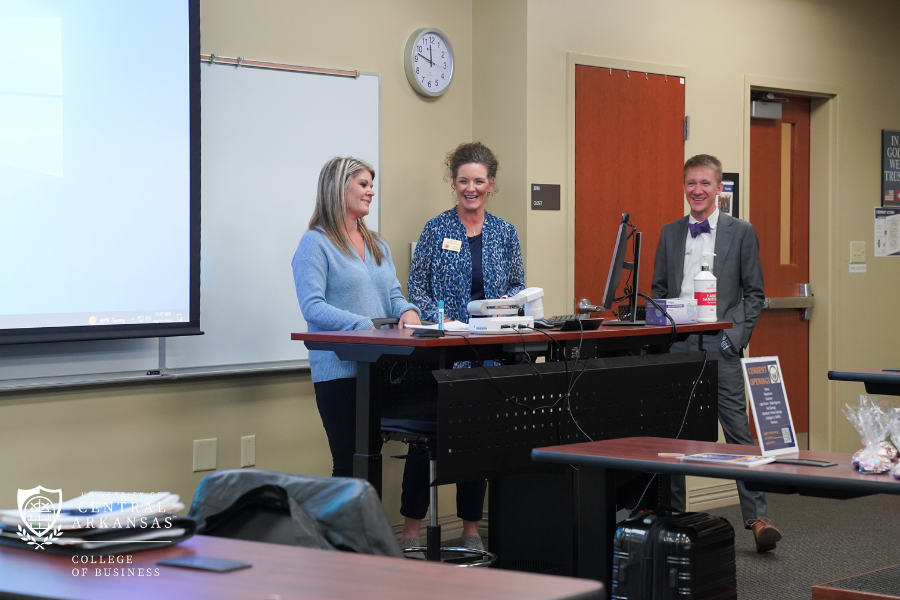 In this interview, Dr. Ryan Cating, the UCA Assistant Professor of Accounting known for his love of bow ties, shares why he chose to teach accounting for his life’s work and his research on the effects of local newspapers on firms’ information environments.
In this interview, Dr. Ryan Cating, the UCA Assistant Professor of Accounting known for his love of bow ties, shares why he chose to teach accounting for his life’s work and his research on the effects of local newspapers on firms’ information environments.
Why did you choose the subject you teach?
I grew up in a family of CPAs as my father and two uncles all worked as accountants at one time or another. Being surrounded by conversation that centered on different types of businesses intrigued me and led me to the college of business. Initially not wanting to follow in my family’s footsteps, I began my academic career studying finance. However, I realized that I wanted a deeper understanding of the source material that I was employing to evaluate the performance and valuation of companies. I switched my major to accounting and have never looked back.

After earning his BS and MPAcc in Louisiana, Dr. Cating likes to celebrate LA traditions such as Mardi Gras with the UCA Accounting department.
What about your job brings you the most joy?
I get the most joy interacting with students in the classroom to get them excited about accounting and succeeding on the CPA exam as a direct result of my course as they begin their careers.
What tips or advice do you have for students?
Always seek to have an open dialogue with professors outside of class, regardless of your major (but especially in your major). The more interaction and knowledge that professors have with and about you, the more they can help you connect with potential employers both before and after graduation.
Share about your recent research and its importance.
I collaborated with Kristian D. Allee and Caleb Rawson, both from the University of Arkansas, on an article published in Review of Accounting Studies in October 2023. In our article, “No news is bad news: local news intensity and firms’ information environments,” we examine the effects of local newspapers on firms’ information environments. With newspaper employment dropping precipitously in the last few decades, we posit that these changes will harm local firms’ information environments. In this study, we ask whether the intensity of local newspapers relative to the local economy (i.e., local news intensity) influences the information available about local publicly traded firms in the capital markets.
[Added note for context: Public companies are required to disclose information to help potential investors and other outside entities analyze the health of the company and understand risks to the company’s financial performance or other issues, such as the impact of the company’s business on communities.]
Consistent with local news improving information environments, we find that volatility, spreads, and illiquidity increase as local newspaper intensity declines and that this is associated with firms’ importance in their local economy. We further find that for firms that are more important in their community, or have busy analysts, less local newspaper intensity is associated with significantly lower analyst accuracy and higher forecast dispersion. This is consistent with local newspapers improving information environments, even for sophisticated and likely remote information intermediaries. We also investigate how stakeholders respond to declines in local news and find that managers increase the amount of forward-looking disclosures while analysts increase coverage.
These results provide insights into the methods by which stakeholders attempt to improve firms’ information environments when local news coverage fades.
In Spring 2024, Dr. Cating can be found teaching undergraduate Auditing in person and online and the graduate Seminar in Case Studies in Accounting.

Dr. Cating welcomes guest speakers such as the Arkansas Legislative Audit (ALA), a group that works to prevent fraud and other crimes, to help students understand the many opportunities available and to help them network with potential employers.
